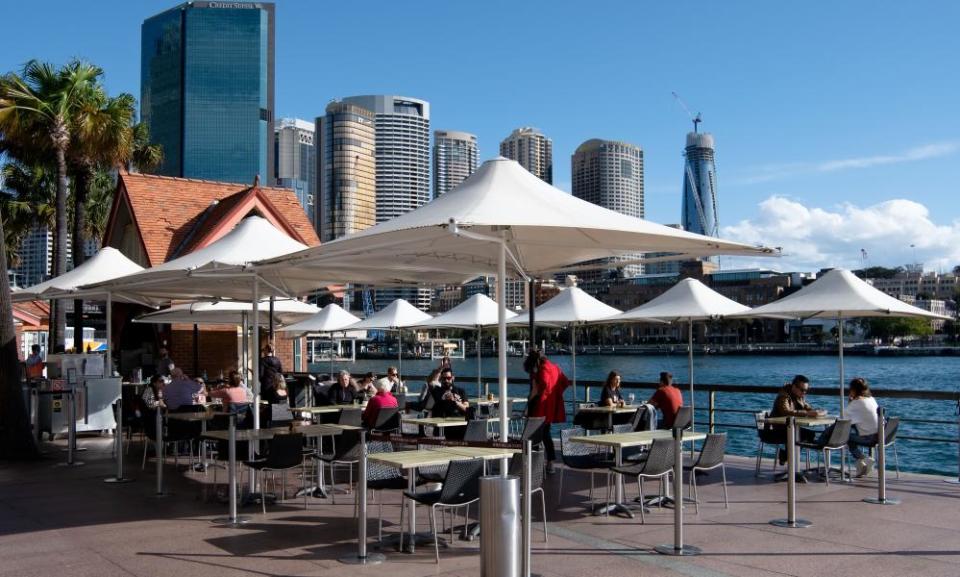Until Covid-19 uncertainty melts away there's little chance of full economic recovery

Health considerations were all that mattered in the early stages of the Covid-19 pandemic. Governments ordered businesses to shut even though they knew activity would fall sharply as a consequence. There was a clear message to the public: stay at home and save lives.
The lockdowns had the desired effect. The number of new cases soon peaked; after a lag, so did the number of deaths. There was a clear pattern. Countries that took the toughest action brought the infection rate down more quickly than those that delayed or imposed less draconian restrictions.
The cost of quarantining economies was enormous. Britain saw output shrink by a quarter in March and April. The International Monetary Fund said 2020 would experience a global recession worse than anything seen since the Great Depression.
So, as the number of Covid-19 cases came down, the focus of governments started to change. They started to fret about the long-term consequences of a protracted lockdown on jobs, poverty and wellbeing, and began easing the restrictions.
This has been done in a phased way. In England, for example, businesses such as garden centres were allowed to open in May, non-essential shops welcomed back customers from 15 June, and it was possible to get a drink in a pub or stay the night in a hotel from 4 July. Gyms, swimming pools and spas were told last week that they could soon reopen.
The government messaging has changed. Instead of the dire warnings about the risk of catching the virus, the line now is that it is safe to go out and have a good time provided precautions are taken. Hence the appearance of the chancellor, Rishi Sunak, as an unmasked waiter at a branch of the restaurant chain Wagamama last week.
It is taking time for the new message to get through. The British Retail Consortium said shopper numbers in the second half of June were more than 50% down on the same period a year earlier despite English non-essential stores being allowed. Pubs and restaurants traded at half their pre-crisis levels in the first weekend of post-lockdown trading in England.
That’s not surprising. The economist Maynard Keynes said one reason for the severity of the Great Depression was the lack of “animal spirits” among entrepreneurs, who were paralysed by uncertainty over their future prospects and therefore reluctant to invest, no matter how low interest rates went. The solution, Keynes said, was for the government to step in and fill the gap left by the private sector, because state investment in public works would boost activity and help revive animal spirits.
Keynes’s analysis explains what is currently happening in the UK and in other western economies, except this time the real drag on activity comes not from a reluctance of businesses to invest (although that is a concern) but of the unwillingness of consumers to spend.
On the face of it, this is curious. Interest rates have never been lower. Incomes have been protected by furloughs and other wage subsidy schemes. Governments have taken a step-by-step approach to restarting their economies, always insisting that what they are proposing is based on scientific evidence.
Yet a return to the pre-crisis level of activity is being hampered by high levels of perfectly understandable uncertainty. People were told this was the most serious pandemic since Spanish flu at the end of the first world war. They were told not to be complacent when infection rates went down because there was a high risk of a second wave. They were told to wear face masks on public transport and to keep their distance in all social situations. When they go for a haircut or a drink in the pub, the barber and the bar staff are wearing masks.
What does that mean? It means life has not remotely returned to normal and nobody knows for sure when it will. Uncertainty prevails, and until that uncertainty melts away there is little chance of a full economic recovery.
Take Australia, a country that acted swiftly at the first signs of the crisis and has a death toll barely into three figures. With a record like that, it might be thought that consumers in New South Wales and Queensland would be relaxed about the lockdown imposed on Melbourne last week after an increase in the number of cases. Yet restaurant bookings in states other than Victoria have suffered even though the number of newly confirmed Covid-19 cases has remained low. The message to consumers in Sydney and Brisbane is that if it can happen in Melbourne it can happen here, so why take a chance.
There are things governments can do to affect consumer psychology and Rishi Sunak tried some of them in his mini budget last week. A temporary cut in VAT for hospitality and tourism is designed to get people back into the habit of eating out and staying the night in B&Bs. Similar thinking lies behind the £10 off “eat out to help out” vouchers for meals in August. The idea is that if people do it once or twice they will realise it is safe and so become less cautious.
It is not that simple, though. Some consumers are not going to fancy dining in an environment that they fear will have all the ambience of an operating theatre, while giving discounts to people who would have eaten out anyway is a waste of money.
Phase 1 of the economic response to Covid-19 was lockdown. Phase 2 was a gradual reopening that kindled hopes of a quick bounce back. Phase 3 is the critical one that will determine whether or not those hopes are realised. The evidence so far suggests it will be a long haul.

 Yahoo Finance
Yahoo Finance 